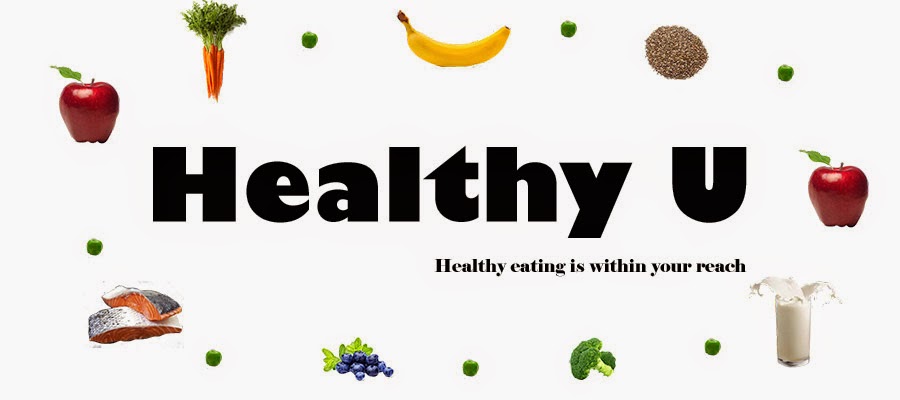Today we are going to spend some time Mythbusting!
Is 8 cups of water necessary? recommended?
NO and NO
Water is used by your body for many different processes and
we constantly lose water via urine, bowel movements, perspiring and breathing.
These losses need to be replaced. Your individual needs will greatly vary and
may be even MORE than this amount! For example if you are working outside or
exercising your perspiration amounts might increase, and therefore your water
needs would as well. The 8 glasses of water was part of an ‘8x8’ health promotion
campaign (8 glasses of 8 ounces of water) that was partially funded by bottled
water distributors!!
This brings us to the idea of: why does your water intake
have to be actual water!? There is water in many of the foods we eat; potatoes are almost 75% water
by weight!. And there are many liquid sources that should be counted in your
water intake as well.
So how much water should you drink? Let thirst dictate your
water needs. If you are thirsty drink something!
Will I lose weight on a low carbohydrate diet? Is it safe?
The short answer to this is: YES and maybe.
We don’t talk about diets a lot in HealthyU because we prefer
to think of what you put in your body as something that appeals to you and is
something that is safe for your body. We emphasize the ‘U’! We do realise
though that there are lots of different diets and ideas about how you ‘should’
go about pursuing your own health goals.
There is evidence that weight loss can occur as a result of
low-carb diets. There are also many other diets where weight loss AND
maintenance (i.e maintaining the original weight loss) are successful.
Most of these diets vary the amounts of the macronutrients
that are taken in. Macronutrients include protein, fats, and carbohydrates. But
these should not be confused with essential nutrients which are particular
fatty acids and proteins that are absolutely required that the body cannot make
for itself.
The answer to ‘safety’ concerns have to do with your
individual body. Our body’s ability to tolerate a change in diet is very
specific to YOUR body. You should speak to your health care provider before
making large shifts in your diet to determine if your particular needs will be
met when you change what you are eating.
Does eating late at night make you fat?
There is no simple answer to this. The most firm answer is: maybe
J
So most of us know that there is a number of calories we
need to function optimally. Calculate yours here: http://www.mayoclinic.org/calorie-calculator/itt-20084939
This is partly dictated on how active we are on a daily basis. If you eat more than
the number of calories needed for your body, there is tendency to have those
energy units saved in your body as fat.
We have all had the experience when we are out socially and
someone suggests grabbing a bite to eat late at night (for reference to social
eating on our blog: ) Often these calories are things we didn’t plan for and are
outside of the norm for us, So these are calories that are not usually needed.
They may also be eaten out of boredom (and adhering to social norms/peer
influence). Thus by their very nature these calories are ‘extra’.
There is very little research done on whether calories eaten
at night make you gain weight simply because they are consumed at night. There
is a theory that the difference in insulin response at night and in early
morning will effect how the calories in your system are used and processed.
Insulin is a hormone that has a complicated physiological response: one of
these responses has to do with the conversion of calories into fat.
If you are trying to keep from gaining weight it might be a
good idea to restrict ANY extra calories – not just the ones consumed late at
night.
There’s lots of buzz about gluten. Is gluten bad for my
body? Should I go on a gluten free diet?
NO! and maybe?
Gluten is a protein which is found most often in grains like
wheat, rye and barley. It is found in most pasta, baked goods, breads, and
cereals. There have been many celebrities, trainers etc that suggest
gluten-free foods aid in weight loss. There is NO EVIDENCE that a gluten-free
diet will aid in weight loss.
All diets by their nature impose restrictions on foods
consumed. Gluten-free diets are even more restrictive because of the large
amount of foods that have gluten in them – and many restaurants have few items
that are gluten-free on the menu. This means that you are automatically
restricted a great deal in the types of food that you can eat – and the
convenience of getting them. This often becomes restrictive to the point of
determining your meals in a very regimented manner. This could result in weight
loss simply because of the restrictive nature of the diet..
References
Cbc. (2015). 8 glasses of water a
day 'an urban myth'. Retrieved 14 March 2015, from http://www.cbc.ca/news/health/8-glasses-of-water-a-day-an-urban-myth-1.1196386
Harvard School of Public Health (2015). Low-Carbohydrate
Diets | The Nutrition Source | Harvard T.H. Chan School of Public Health.
Retrieved 14 March 2015, from http://www.hsph.harvard.edu/nutritionsource/carbohydrates/low-carbohydrate-diets/
Mayo clinic. (2015). Water: How much
should you drink every day? - Mayo Clinic. Retrieved 14 March 2015, from
http://www.mayoclinic.org/healthy-living/nutrition-and-healthy-eating/in-depth/water/art-20044256
Science Daily. (2015). That Late-night
Snack: Worse Than You Think. Retrieved 14 March 2015, from
http://www.sciencedaily.com/releases/2009/09/090903110800.htm







No comments:
Post a Comment